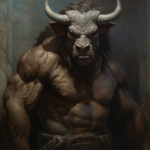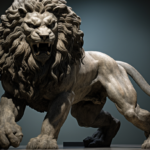You want to explore the fascinating connection between the Romans and the Trojans in mythology. Well, get ready to dive into an ancient world full of gods, goddesses, heroes, and epic battles.
In this article, we will uncover how the Romans were influenced by Trojan mythology, from their gods and goddesses to their rituals and festivals.
So, buckle up and prepare to embark on a journey that will reveal the enduring legacy of the Trojan connection in Roman culture.
Key Takeaways
- The Roman Trojan connection is rooted in mythology and has a significant impact on Roman politics and society.
- The Trojan connection became a symbol of strength, resilience, and destiny for the Romans, influencing their political and social structures.
- Trojan mythology greatly shaped and influenced the pantheon of Roman gods and goddesses.
- The Romans believed they were descended from the Trojans, providing a sense of pride and legitimacy to their ancestry.
The Origins of the Roman Trojan Connection
You’ll learn about the origins of the Roman Trojan connection through this article. The Roman Trojan connection is rooted in mythology and has a significant impact on Roman politics and society.
Historical evidence supports the existence of this connection, tracing it back to the ancient city of Troy. According to the legends, after the fall of Troy, some Trojan survivors sought refuge in Italy, where they eventually founded the city of Rome.
This connection between the Trojans and Romans is further reinforced by the Aeneid, an epic poem written by the Roman poet Virgil. The Aeneid tells the story of Aeneas, a Trojan hero who escaped the destruction of Troy and later became the ancestor of the Roman people.
This mythological narrative played a crucial role in shaping Roman identity and providing a sense of national pride. The Trojan connection became a symbol of strength, resilience, and destiny for the Romans, influencing their political and social structures.
The Romans believed that their destiny was intertwined with that of the Trojans, and this belief had a profound impact on their society, politics, and even military strategies.
The Influence of Trojan Mythology on Roman Gods and Goddesses
The tales of Trojan mythology greatly shaped and influenced the pantheon of Roman gods and goddesses. Here are four ways in which Trojan mythology left its mark on Roman culture:
- Influence on Roman art: The stories of the Trojan War and its heroes, such as Hector and Achilles, were popular subjects in Roman art. Paintings, sculptures, and mosaics depicted scenes from the Trojan War, showcasing the bravery and tragedy of these legendary figures. These artworks not only celebrated the heroes of Trojan mythology but also served as a reminder of Rome’s own military might and imperial aspirations.
- Trojan mythology in Roman architecture: The Romans incorporated elements of Trojan mythology into their architecture, using symbols and motifs associated with Troy. For example, the Temple of Venus Genetrix in Rome featured reliefs depicting scenes from the Trojan War, linking the goddess Venus, who was believed to be an ancestor of the Romans, to the Trojan lineage. This fusion of Trojan and Roman mythology helped legitimize the Roman Empire and its rulers by connecting them to the epic tales of the ancient Trojans.
- Adoption of Trojan deities: Roman gods and goddesses were often equated with their Trojan counterparts. For instance, the Roman god Mars was identified with the Trojan god Ares, both representing war and violence. This syncretism allowed the Romans to assimilate the Trojan deities into their pantheon, expanding their divine hierarchy and emphasizing the continuity between their civilization and the legendary city of Troy.
- Trojan heroes as Roman ancestors: The Romans believed that they were descended from the Trojans, tracing their lineage back to the hero Aeneas, who escaped the fall of Troy and eventually founded the city of Rome. This mythological connection provided the Romans with a sense of pride and legitimacy, as they saw themselves as the heirs of a glorious and noble ancestry. The heroes of Trojan mythology, such as Aeneas and his son Ascanius, became revered as the legendary founders of Rome, further cementing the influence of Trojan mythology on Roman society.
The Trojan War in Roman Literature and Art
To truly understand the impact of the Trojan War on Roman literature and art, you’ll need to explore the various ways in which this epic conflict was depicted and interpreted by Roman writers and artists.
The portrayal of the Trojan War in Roman literature was extensive and diverse. One of the most famous accounts is found in Virgil’s epic poem, the Aeneid, where he tells the story of Aeneas, a Trojan hero who eventually establishes the city of Rome. Virgil’s work not only highlights the heroism and tragedy of the war but also emphasizes the connection between the Trojans and the Romans, reinforcing the idea of Rome’s divine origins.
In addition to literature, the Trojan War also had a significant presence in Roman art. Numerous works of art, such as sculptures, frescoes, and mosaics, depicted scenes from the war. These artworks often showcased the bravery of the Trojan warriors, the cunning strategies of the Greek army, and the tragic events that unfolded during the conflict. The Trojan War served as a popular subject for Roman artists, allowing them to showcase their skills in capturing dramatic moments and conveying the emotions of the characters involved.
The Legacy of Aeneas: Trojan Hero and Roman Founder
Explore the enduring impact of Aeneas, the Trojan hero who founded Rome and left a lasting legacy in Roman mythology.
Aeneas, renowned for his leadership and heroism, symbolizes the virtues that the Roman people hold dear. His journey to Italy, as depicted in the epic poem ‘The Aeneid’ by Virgil, showcases his determination, resilience, and unwavering commitment to his destiny.
Here are four key aspects of Aeneas’ legacy that shaped the foundation of the Roman Empire:
- Foundation of Rome: Aeneas, guided by divine intervention, led a group of Trojan survivors to Italy. This migration marked the beginning of a new era, as Aeneas established the city of Lavinium, which later evolved into the grand city of Rome.
- Divine lineage: Aeneas wasn’t only a mortal hero but also a descendant of the gods. His divine bloodline, tracing back to the goddess Venus, highlighted the divine favor bestowed upon him and emphasized the greatness of Rome.
- Pious devotion: Aeneas’ unwavering devotion to his gods and ancestors served as a model for Roman citizens. His piety and commitment to fulfilling his destiny showcased the importance of religious duty and moral integrity in Roman society.
- Legacy of heroism: Aeneas’ courage and bravery in the face of adversity inspired future Roman leaders and citizens. His heroic deeds during the Trojan War and his perseverance in overcoming countless challenges demonstrated the indomitable spirit that became synonymous with the Roman people.
Aeneas’ journey to Italy and the establishment of the Roman Empire not only solidified his place as a revered figure in Roman mythology but also shaped the values and ideals that defined the Roman civilization. His legacy as a symbol of leadership, heroism, and unwavering commitment continues to resonate with those who cherish the principles of freedom and independence.
The Trojan Connection in Roman Rituals and Festivals
Immerse yourself in the rich tapestry of Roman rituals and festivals, where the Trojan connection comes alive through vibrant ceremonies and celebratory events. The Romans were deeply influenced by the legends and myths of Troy, and this influence is evident in their religious practices and festive traditions.
In Roman religion, there were specific rituals dedicated to the Trojans and their deities. The Romans believed that they were descendants of Aeneas, the Trojan hero who fled the burning city and eventually founded Rome. To honor their Trojan heritage, they performed rituals and made offerings to deities associated with Troy, such as Venus, the goddess of love and beauty, who was believed to be Aeneas’ mother.
The Trojan influence on Roman festivals was also significant. Many of the Roman festivals were inspired by the stories and characters from the Trojan War. For example, the Lupercalia festival, celebrated in February, had its roots in the ancient ritual of the Luperci, who were believed to be descendants of the Trojan prince Aeneas. During this festival, young men would run through the streets of Rome, symbolically reenacting the journey of Aeneas and his companions.
To further illustrate the Trojan connection in Roman rituals and festivals, here is a table showcasing some notable examples:
| Festival Name | Trojan Connection | Date |
|---|---|---|
| Saturnalia | Honoring Saturn, Trojan god of agriculture | December |
| Quinquatria | Celebrating Minerva, goddess of wisdom and war | March |
| Floralia | Worshiping Flora, goddess of flowers and vegetation | April-May |
| Cerealia | Revering Ceres, goddess of agriculture and fertility | April |
| Parilia | Paying homage to Pales, goddess of shepherds and flocks | April |
As you can see, the Trojan influence is woven into the fabric of Roman rituals and festivals, adding depth and meaning to their celebrations. These traditions allowed the Romans to connect with their mythical ancestors and honor their Trojan heritage, fostering a sense of identity and continuity in their culture. So, join in the festivities and experience the vibrant spirit of the Trojan connection in Roman rituals.







